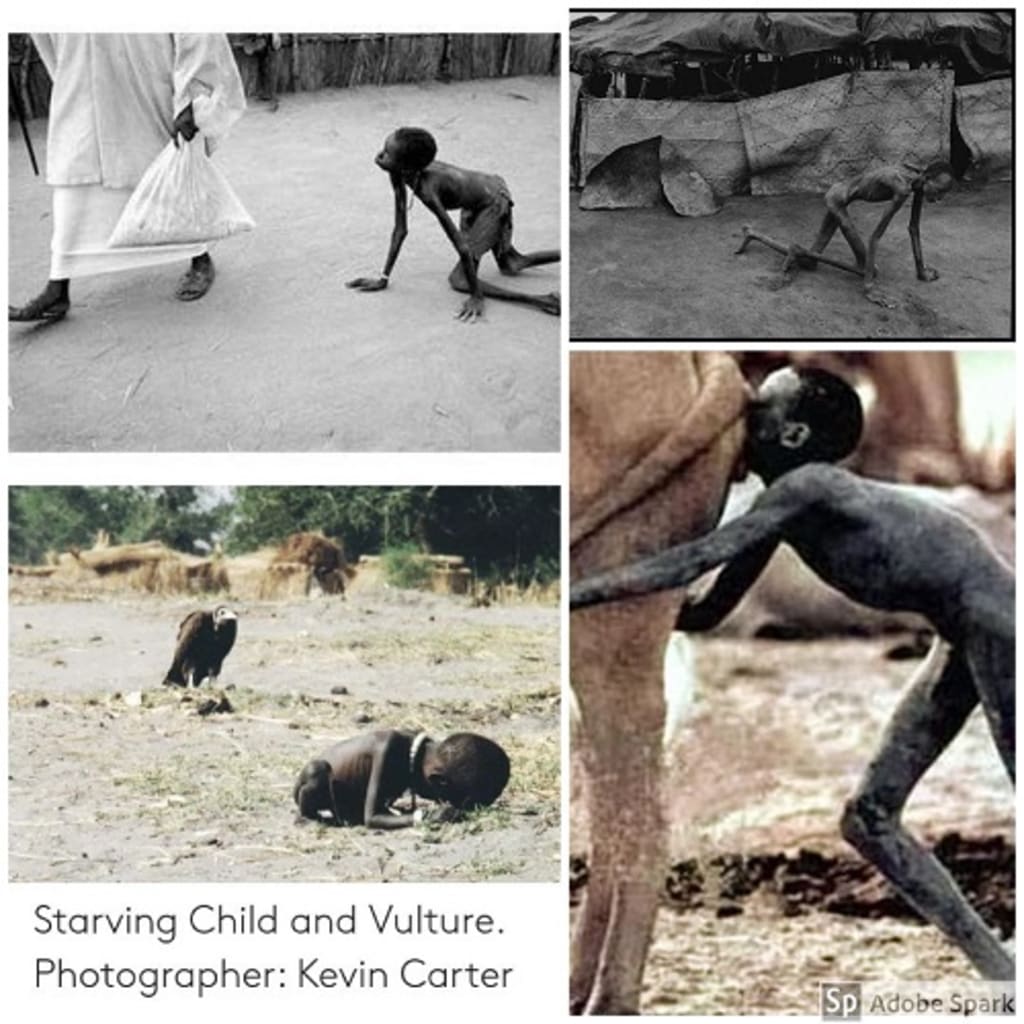
Kevin Carter, a distinguished South African photojournalist and a notable member of the renowned Bang-Bang Club, left an indelible mark on the world through his lens. In recognition of his exceptional work, he was honored with a Pulitzer Prize for a photograph that hauntingly captured the devastating 1993 famine in Sudan. However, behind the lens and the accolades, Carter's life was marked by profound complexities that eventually led him to a tragic end at the tender age of 33.
Born with an innate curiosity and a keen eye for visual storytelling, Kevin Carter's journey into the realm of photojournalism began with a fervent desire to expose the realities of the world. His affiliation with the Bang-Bang Club, a group of photojournalists dedicated to documenting the tumultuous events during the final years of apartheid in South Africa, propelled him into the midst of history in the making.
The Pulitzer Prize-winning photograph that catapulted Carter into international recognition depicted the harrowing scenes of the Sudanese famine. The image, capturing a vulture ominously overlooking a starving child, stirred the collective conscience of the world. Carter's ability to encapsulate the raw and unfiltered essence of human suffering through his lens became both a testament to his photographic prowess and a catalyst for global awareness.
However, the accolades and acclaim came at a profound personal cost for Carter. The weight of witnessing and documenting human suffering began to take its toll on his mental well-being. The ethical dilemmas inherent in capturing moments of intense vulnerability and tragedy left Carter grappling with the moral implications of his work. The lines between bearing witness and intervening blurred, leaving him in a perpetual state of inner turmoil.
As Carter navigated the complexities of his chosen profession, his internal struggles manifested in the form of mental health challenges. The psychological toll of immersing himself in the darkest corners of the human experience became increasingly apparent. The juxtaposition of acclaim for his work and the internal conflict it ignited created a turbulent narrative within Carter's own life.
The intricacies of Carter's personal journey shed light on the broader challenges faced by photojournalists who bear witness to human suffering. The ethical tightrope they walk, balancing the responsibility to document with the innate desire to make a positive impact, is a theme that resonates across the profession. Carter's story serves as a poignant reminder of the delicate equilibrium required to navigate the moral terrain of photojournalism.
In the aftermath of receiving the Pulitzer Prize, Carter found himself grappling with the expectations and responsibilities that accompanied such a prestigious accolade. The recognition brought with it a heightened scrutiny of his work, amplifying the internal conflicts that had long simmered beneath the surface. The accolade, rather than serving as a source of validation, became a double-edged sword that intensified the complexities of Carter's personal and professional life.
Despite the acclaim, Carter continued to confront the demons that haunted him. The toll of witnessing human suffering on an unprecedented scale, coupled with the internal struggle to reconcile the role of a passive observer with that of an active advocate, pushed him to the brink. The existential questions that permeated his mind found no easy answers, contributing to a sense of isolation that further exacerbated his mental health challenges.
As Carter's internal battles raged on, his tragic demise at the age of 33 underscored the profound impact of the choices he made in pursuit of his craft. The photojournalist who had once brought the world face to face with its own conscience ultimately became a casualty of the moral complexities inherent in documenting human suffering.
The legacy of Kevin Carter extends beyond the frame of his Pulitzer Prize-winning photograph. It serves as a stark reminder of the sacrifices made by those who dedicate their lives to bearing witness to the darker facets of humanity. Carter's story prompts a reflection on the broader implications of photojournalism, raising crucial questions about the ethical responsibilities that come with the power of capturing images that shape public perception.
In the wake of Carter's passing, the photojournalistic community engaged in introspection, reevaluating the dynamics between documenting and intervening. The industry faced a reckoning as conversations surrounding mental health support for those on the front lines of human suffering gained prominence. Carter's tragic narrative became a catalyst for change, prompting a renewed commitment to addressing the well-being of photojournalists facing the relentless demands of their profession.
The Kevin Carter story also highlights the need for a nuanced understanding of the psychological toll that witnessing trauma can inflict on individuals within the field of photojournalism. It calls for a compassionate approach to the mental health challenges faced by those who navigate the delicate balance between being a detached observer and an empathetic advocate.
In the years following Carter's death, efforts were made within the photojournalistic community to establish support systems and resources aimed at mitigating the impact of witnessing trauma. The recognition that mental health is an integral component of a photojournalist's well-being prompted initiatives to provide counseling, debriefing sessions, and educational programs on coping mechanisms.
Carter's tragic narrative also prompted a broader societal reflection on the ethical responsibilities of media consumers. The photograph that earned him the Pulitzer Prize became a symbol of the power that images hold in shaping public perception and driving humanitarian action. It urged individuals to critically examine their role in consuming such imagery and to advocate for ethical practices within the media industry.
The Kevin Carter story is one of complexity, nuance, and the intricate interplay between personal convictions and professional obligations. His life and legacy compel us to confront the ethical dimensions of photojournalism, challenging us to consider the human cost of the powerful images that shape our understanding of the world. As we reflect on the profound impact of Carter's work, we are compelled to engage in a broader conversation about the moral responsibilities inherent in bearing witness to the human experience through the lens of a camera.






Comments
There are no comments for this story
Be the first to respond and start the conversation.